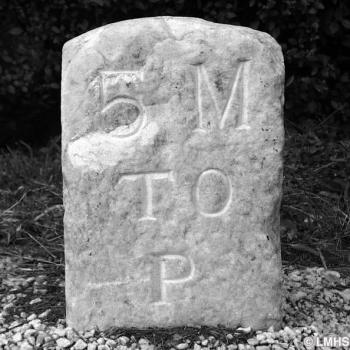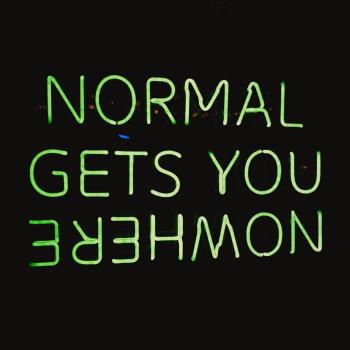
“Alberta is close. British Columbia isn’t bad. But I think Manitoba is too far,” I said, as I explained to my wife the possible places we could move to in Canada. Saskatchewan was out of the question because I fear spelling it incorrectly. But the topic has arisen in conversation, “Is it time to move to Canada, yet?”
Living in Idaho means living in a very conservative state, a state solidly behind the present executive branch of the United States government. It also means that Canada is less than a day’s drive away. We could leave Boise in the morning and be in Vancouver, British Colombia or Lethbridge, Alberta by nightfall.
However, my wife – kindhearted and loving – brought me back to reality by simply reminding me that we could not move that far away from our grandsons. Ok. She won. We’re staying. I hate packing boxes anyway.
The Clash
No, not the band from the band from band from London who emerged from the punk scene in the 70s and 80’s. But the clash of expectations. The clash of ideologies and values. The clash I feel nearly every day as I overhear conversations that are racist parroting of certain cable news commentators or presidential tweets. Yet, their song, “Should I Stay or Should I Go?” is a perfect soundtrack for these thoughts.
Yesterday, while relaxing in the dry sauna after a hard workout, a number of people began a conversation about “illegals” and how they were depleting social security benefits. It was similar to the conversations before about how the “democrat” party wants to remove all privately held guns, how the previous administration created a racial problem, how “the blacks” just need to fit in.
I know it’s a chicken move, the idea of heading to Canada, but sometimes I want to get away from this present political and cultural madness. Maybe we could take our grandkids, too. Besides, we know a number of Canadian Mennonites we could hang out with.
Should I Stay or Should I Go?
As my wife and I talked about this, we recalled the conversations of past generations. How those avoiding the Viet Nam era draft headed to Canada and began new lives there. Much like David James Duncan’s character Everett Chance from, The Brothers K.
Facebook also has had posts and comments about moving to Canada. There have been posts responding to any one of a number of “making America great again” strategies such as: walking out on climate change agreements; backing out of the INF treaty; lining the pockets of corporate titans; separating children from parents; refusing to condemn white supremacy. I think I should stop now if I want to fall asleep at night.
In all this you greatly rejoice, though now for a little while you may have had to suffer grief in all kinds of trials (I Peter 1:6).
Dear friends, do not be surprised at the fiery ordeal that has come on you to test you, as though something strange were happening to you (I Peter 4:12).
It’s not exactly “fiery”, but it isn’t exactly comfortable. either.
Oh, Canada
According to a Gallup Poll in January of 2019 a record number of US citizens would like to leave the country. And Canada is the first choice. According to Gallup, 40% of women younger than 30 would like to leave the U.S, and 22% of those who disapprove of the president would like to move. According to the Migration Policy Institute, US immigration accounts for only a small portion of the total annual immigrants.
Bonhoeffer Told Me to Stay
All this thinking about moving the Great White North finally slowed down when I thought about Dietrich Bonhoeffer. Bonhoeffer is remembered as a martyr opposing the tyranny of Hitler’s Third Reich. However, he didn’t have to be a martyr. He did have a way out.
Having studied at Union Seminary in New York, he was familiar with New York and had many friends there. When the threat of conscription into Hitler’s military seemed immanent, he left Germany to be among his colleagues in New York, in 1938. But his stay in New York was brief. Knowing the growing turmoil in his homeland, he made the decision to return to Germany in the summer of 1939.
Hope for a Future
His reasoning was based on hope. Bonhoeffer, though he could not see it, imagined that there was going to be a time beyond the Third Reich. His ideas on the nature of the church in this future are sketched out in Letters and Papers from Prison. Bonhoeffer’s decision to return was not based on some fatalistic assumption.
In the spring of 1939, Dietrich Bonhoeffer was safe and sound in the United States. He could have remained. But on June 20, 1939, he made the “fateful decision” to return to Nazi Germany. Why? In a letter to Reinhold Niebuhr, he gave the following explanation:
I have made the mistake in coming to America. I must live through this difficult period of our national history with the Christian people of Germany. I will have no right to participate in the reconstruction of Christian life in Germany after the war if I do not share the trials of this time with my people…Christians in Germany will face the terrible alternative of either willing the defeat of their nation in order that Christian civilization may survive, or willing the victory of their nation and thereby destroying civilization. I know which of these alternatives I must choose, but I cannot make this choice in security. (Conspiracy and Imprisonment, 1940-1945)
Bonhoeffer imagined a future of participation in the “reconstruction of Christian life.” There might not be a democracy, or there might be some lingering shadow of the fascist regime. Nonetheless, he was determined to “share the trials of this time”.
I know that our present grief over the injustices and human rights violations is not all there is to the story. Our present turmoil is nothing like the regime of the Third Reich. Some could say we’ve seen worse times. Or, some might reassure me that it’s not that bad.
But how bad must it become before people of good faith begin to speak on behalf of kindness and justice?
Remaining
It’s not like our bags were packed, so it isn’t any big sacrifice to say we won’t move to Canada. Besides, we don’t even know if they’d want us. But the sacrifice comes as we engage in our communities and build new bridges and keep practicing the good work God has for us and that God is still creating among us. Even here.












